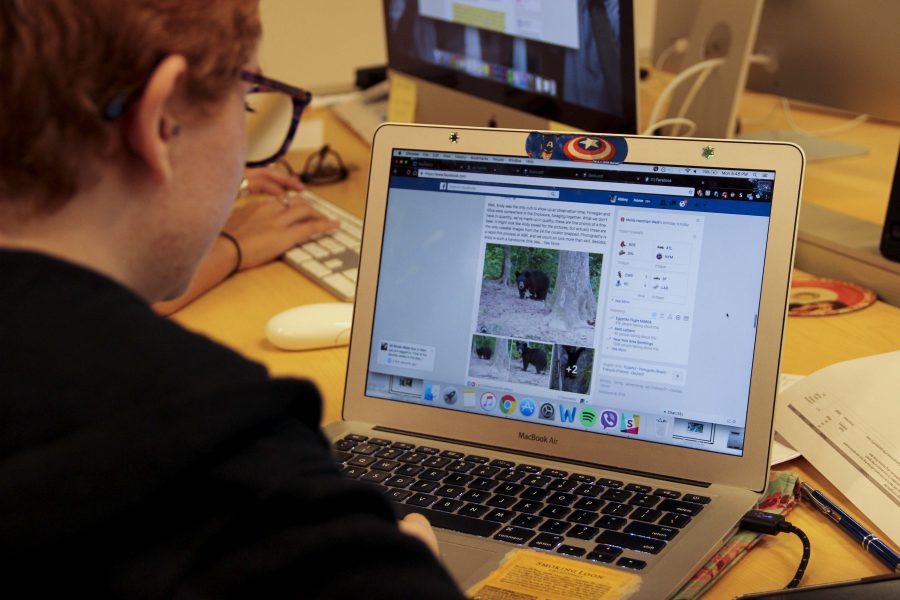Is Facebook Becoming Less Personal?
In comparison to other social media platforms, college students tend to have a more professional tone while using Facebook.
September 20, 2016
In 2004, Mark Zuckerberg conceived Facebook as a means for college students to connect with one another. A dozen years later, Facebook users’ ages range from 13 to over 100, noticeably wider than the original college-aged demographic. How are NYU students using Facebook in 2016?
“It’s a good connection between students and their families because a lot of kids have family members on Facebook,” Tisch freshman Maeghan Suzik said. “If they’re far away from their family, they can post a picture or a little status update about what they did that day and their family can see it.”
College students’ status updates often have a professional tone, meant for family members or colleagues. Other social media platforms such as Snapchat or Instagram, though also used as business tools, frequently have more relaxed captions meant to connect with younger demographics.
“My sister, who graduated Gallatin in 2015, used Facebook a lot more when she was an undergrad, like for pictures and communication,” Gallatin freshman Julia Williams said. “Now she mainly uses it to share interesting articles or videos.”
This particular statement is not surprising considering the 21 percent decline in original content sharing on the site, according to a report published in April by The Information and shared by Forbes. This means that we’re seeing fewer personal updates and more of the same articles and videos going viral, in addition to a current trend of promoting political agendas through Facebook. The personal content we do see can be aggressively opinionated.
“A big part of Facebook use for our age is our political beliefs,” Williams said. “I think political debate is a wonderful thing and I like seeing how people view important issues, but I do not appreciate when people are disrespectful of others’ views and get aggressive, which I see happening a lot over social media and Facebook.”
Political issues are not only a turnoff for some users seeking less combative feeds, but a reason to avoid the drama associated with Facebook altogether. Facebook censors stirred controversy this month when the Pulitzer-prize winning “Napalm Girl” photograph, featuring a nine-year-old naked girl fleeing in horror during the Vietnam War, was taken down and the connected account was suspended for violating Facebook’s policies on nudity and child pornography. In August, Facebook’s automated “Trending” section publicized a fake article on Fox News firing anchor Megyn Kelly due to new algorithms used to promote popular stories. These complications mean that Facebook may not be worth the hassle for some college students.
“The main reason I use Facebook is for Messenger,” Gallatin freshman Greg Hosono said. “Facebook’s Messenger is cross-platform so you can have it on your phone and your computer. I think that cross-platform messaging is super, super useful given that not everyone has an iPhone or Android phone so you can quickly get in touch with folks.”
Although it is widely used, Messenger does not generate more personal content for Feeds. Rather, it reduces widespread status updates in favor of direct messaging. Only time will tell whether Facebook will change its technology more drastically with the tech-times to cater to younger demographics, or whether our Groups and Messenger will further separate personal issues from political thoughts and articles found in Feeds.
Email Megan Kasselberg at [email protected].

























































































































































